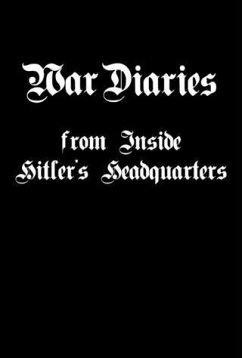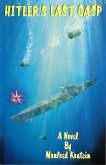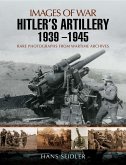Operation Barbarossa was the code name for Nazi Germany's invasion of Soviet Russia.
Thus German/Nazi historian Helmuth Greiner quoted Hitler. Greiner served as Custodian of the War Dairy in Hitler's Headquarters August 1939 until April 1943, when he was dismissed, apparently for not being sufficiently pro-Nazi. He survived the war without being sent to a death camp or shot. His Diary entries were ordered destroyed but were reconstructed between 1946 and 1949.
Greiner's Diary entries reveal major decisions by Hitler; movements by vast Nazi Wehrmacht armies, the Nazi air force, the Luftwaffe, and navy,the Kriegsmarine; the size of the Nazi military and mentions many top Nazi generals.
Of particular interest are Greiner's separate diary entries for Operation Barbarossa, the Nazi invasion of Soviet Russia. This file is a 126-page document. Greiner begins by revealing how top Nazi generals were horrified by Hitler's decision to invade Russia; convinced, as he was, the invasion could crush Russia in three or, at the most, four months.
Greiner reveals conditions for the Wehrmacht outside Stalingrad 10 January 1943:
"Situation Report: At present the daily food rations for the personnel of the Sixth Army consist of: 75 grams of bread, 200 grams of horse meat including bones, 12 grams of fat, 11 grams of sugar and one cigarette. By 20 January, all horses will be slaughtered."
These documents were translated by U.S. Army language experts after World War Two.
FIRST PUBLICATION IN ENGLISH -- from U.S. Army translations.
"War Diaries from Inside Hitler's Headquarters" should be considered a major addition to research and study of World War Two and the Nazi military machine.
These pages are reproductions of post-World War Two U.S. Army translations. Introduction, 336 text pages.
Dieser Download kann aus rechtlichen Gründen nur mit Rechnungsadresse in A, B, BG, CY, CZ, D, DK, EW, E, FIN, F, GR, HR, H, IRL, I, LT, L, LR, M, NL, PL, P, R, S, SLO, SK ausgeliefert werden.









